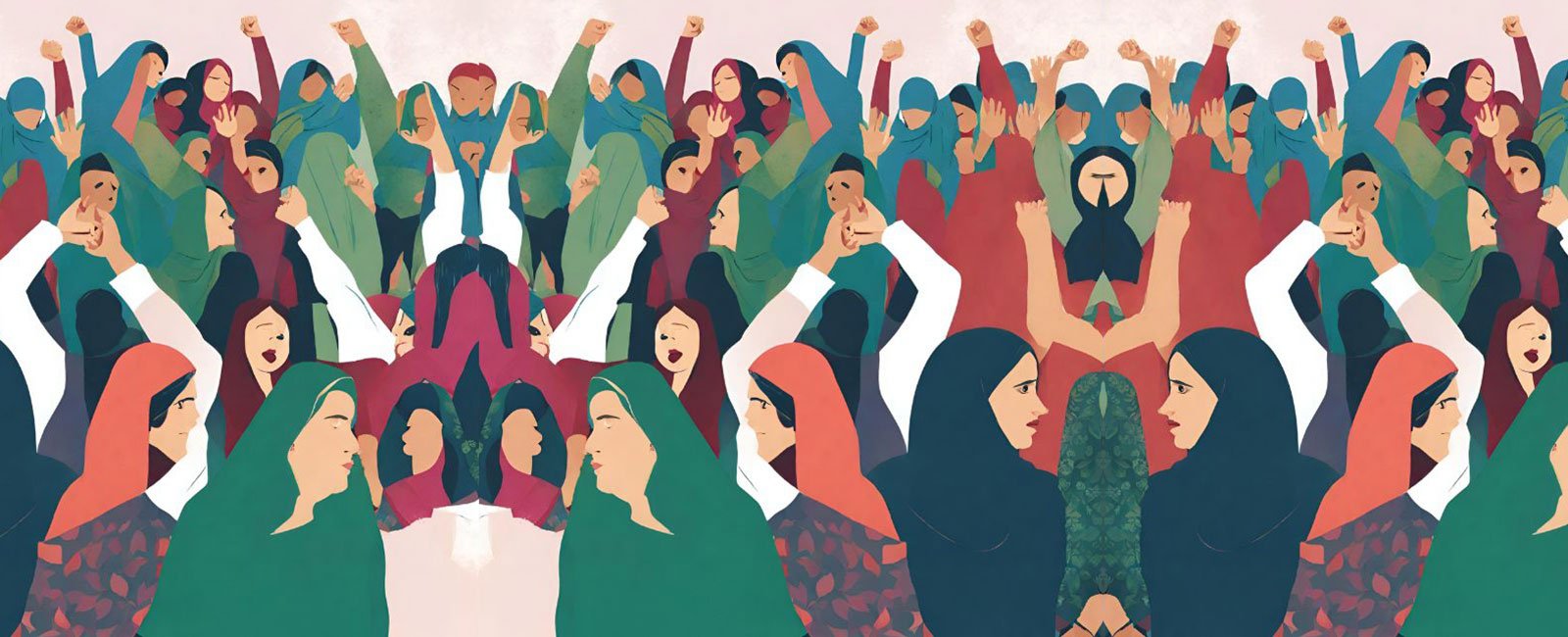Pakistan Election 2024: Will parties women's rights vows see the light of day?
Political parties contesting polls have made promises of a safer and prosperous Pakistan for women, but will they deliver on them

As the political battlefield is set for the February 8 general elections, out of 127 million registered voters, 10 million more men than women have registered to vote in the forthcoming elections. Even though women make up around 49% of the population, their voter turnout has never reflected that in the voter count.
According to a study conducted by USIP, the 2018 General Elections in Pakistan saw the highest gender gap in voter count so far.
Interestingly, there were fewer women voters in urban areas than there were in rural areas. There are various contributing factors, including patriarchal households, and lack of political knowledge or process, but this is also a major signifier of how important it is to ensure the rights of women in a country where they are often neglected.
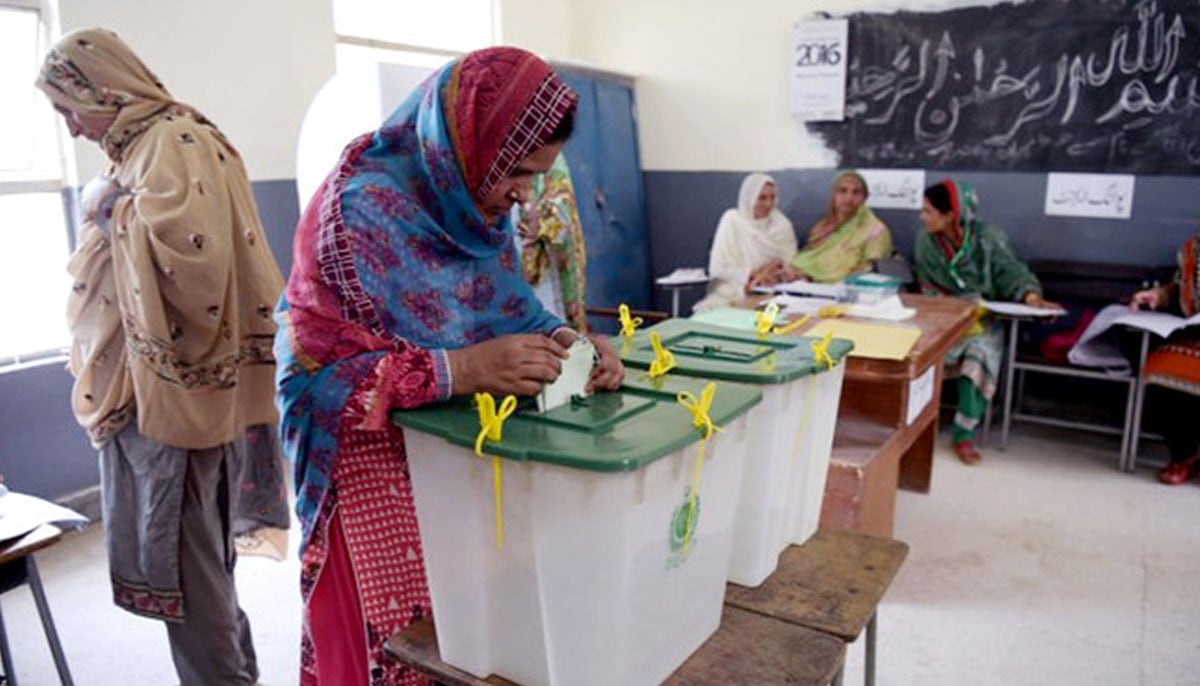
The Election Commission of Pakistan (ECP) has assigned 150 different symbols to registered political parties while 174 have been allotted to independent candidates.
The major political parties contesting include Pakistan Muslim League-Nawaz (PML-N), Pakistan People’s Party (PPP), Muttahida Qaumi Movement-Pakistan (MQM-P), Istehkam-e-Pakistan Party (IPP), Jamaat-e-Islami (JI), Jamiat Ulema-e-Islam Pakistan-Fazl (JUI-F), Tehreek Labbaik Pakistan (TLP), Pakistan Muslim League-Quaid (PML-Q), Awami National Party (ANP), and Balochistan National Party-Mengal (BNP).
With elections inching closer, political parties have laid bare their aims and promises for the country’s future in their manifestos. All major contesting parties in the country have acknowledged the plight of women, but it remains to be seen if their proposed changes for the 49% of the population will come to fruition.
What are party manifestos proposing?
PML-N
- The major theme in PML-N’s manifesto is the economic stability of women and empowering them through legal safeguards.
- Bridging the digital gender divide by “increasing smartphone usage from 20% to 50%”
- Encourage more women to have banking accounts “from 13% to 50%.”
- Women-run businesses will have a 5% quota in all economic and industrial zones.
- Establishing a task force for (VAW), women police units in all stations and expanding helpline 1043 across Pakistan.
- To “ensure adequate facilities” and “psychological counsellors at all prisons” especially women's
- To “enforce legislation and legal support” for women's rights to property and inheritance.
- Help reduce the high maternal mortality rate in Balochistan and Sindh.
- Increase “time-bound reserved seats for women from 17% to 33% across legislatures for the next 30 years or six general elections.”
- Ensure the rights of transgender people “in health, social protection schemes and environment.”
PPP
- The party manifesto focuses on combating the economic crisis in Pakistan. For women, the party promises to ensure basic rights to them.
- “At least 3 million climate-resilient homes” will be built, and “women heads of household” will “get legal titles of the property.”
- Waseela-e-Haq (WEH) programme to help provide “micro-loans to women to enhance small business and entrepreneurship” for poverty reduction
- A “one-year stipend for educated, deserving young women and men to transition to work.”
- To connect women with the market economy as entrepreneurs for food insecurity.
- To provide a “free 1,000 days’ nutritional programme for expectant/new mothers to decrease stunting, wasting and infant mortality.”
PTI
- To ensure a 25% quota for women in political roles at all levels.
- To make policies that protect working women and their right to work.
- “Identifying and eliminating laws that discriminate against women.”
- Family Courts will be tasked to resolve “post-divorce property disputes, aiming for resolution within twelve months.”
- Steps to introduce policies that allow equal pay across all institutions.
- To establish a “holistic approach” to combat domestic violence and harassment through “strict enforcement of laws, survivor support services” and awareness.
- Ensure the right to property and inheritance for women.
- “Enhance women’s access to healthcare, focusing on rural areas, and ensure that services are sensitive to the unique health needs of women.”
MQM-P
- To “gradually increase the representation of women to 50%” at all government levels.
- To “establish women's rights commissions and committees in line with national and provincial women's rights commissions at the local government level.”
- Effective legislation and implementation of strict punitive measures against all types of violence, abuse and harassment of women, including honour killing, Karo Kari among others.
- To establish and organise "women shelter homes" run and managed by the local government with the participation and support of the community so that no harm comes to their way.
- The party will also be “revisiting and repealing all existing discriminatory laws against women.”
Jamaat-e-Islami
- To provide free education to all women until matriculation and encourage equal opportunities for higher education.
- Per Shariah, safeguard a woman’s right to property through legislation that ensures inheritance from her father and husband.
- “Non-Islamic” practices such as unreasonable demands of dowry, watta satta, wani, marriage to Holy Quran, karo kari and honour killing will be banned.
- To make laws that a man cannot divorce a woman in a single go, and the act itself will be penalised.
- To provide a conducive working environment to professional women: flexible working hours, four-month maternity leaves, half-paid leaves for nurturing their children, separate transit, lower age of employment in government and semi-government departments for widows and divorced women.
What needs to be addressed?
Geo.tv reached out to some experts, who shared their insights into the current standing of women's rights in the country and what changes can be expected.
Khawar Mumtaz, former chairperson of the National Commission on Status of Women, highlighted “poverty” as one of the big issues faced by women in Pakistan, urging political parties “to have women participation in decision-making forums.”
She also stressed regularising informal women workers so they can get the benefits that the law provides for permanent workers, which includes leaves, medical allowance and maternity benefits.
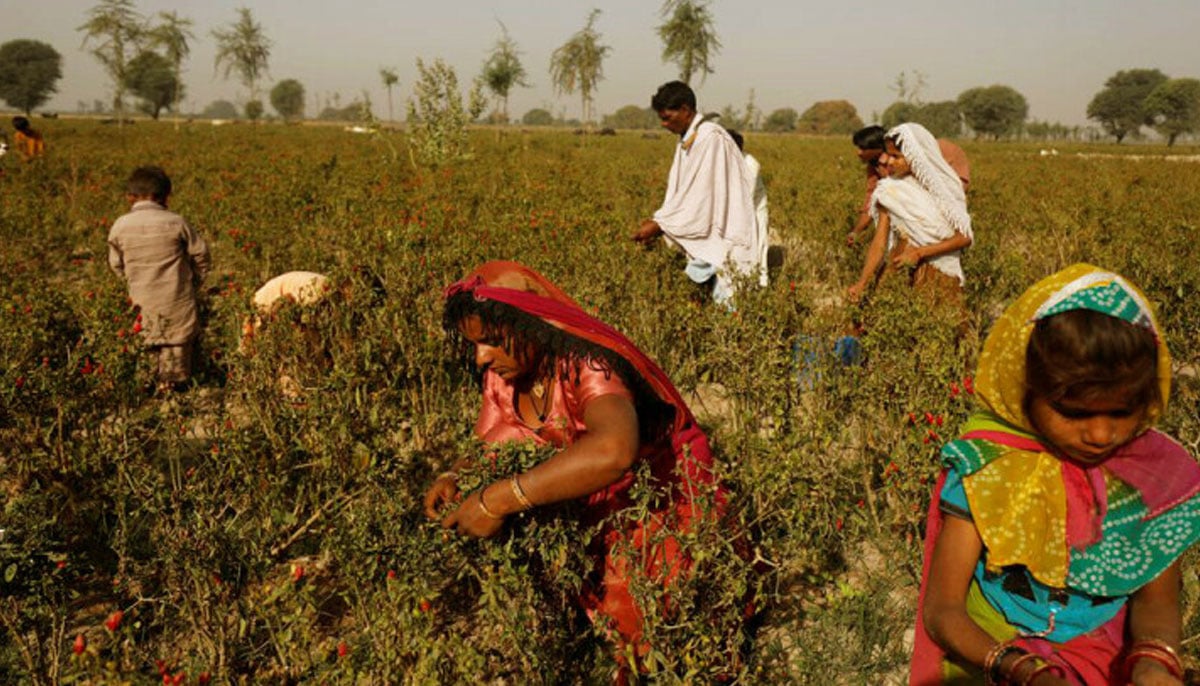
Similarly, Zohra Yusuf, a council member of the Human Rights Commission of Pakistan (HRCP) also underscored poverty as a “critical aspect which affects women in several different ways". She also expressed her concerns over the participation of the women themselves in the upcoming elections. Meanwhile, Farzana Bari, an Islamabad-based Human Rights Activist, focussed on violence against women which has been on the drastic rise in the past few years and stressed the need for implementation.
In the same vein, Saima Javaid, Gender & Protection Specialist at Tameer-e-Khalq Foundation and an activist in Balochistan urged for more implementations than proposals concerning women’s basic rights, which included their security and representation.
Experts weigh in
Focussing on the positives, Mumtaz noted that there was a more nuanced reflection in political parties.
“MQM-P asking for 50% women as elected representatives, which is big. I was surprised that JI penalises divorce in one go. JI also has brought up female education up to high school.”
On the topic of religious parties proposing women's rights pointers, she did note that there was an issue of interpretation.
“There is never a categorical statement that women should be treated equally by the law or should be given respect. However, what’s distinctive about JI is that they will not issue tickets to men who have denied inheritance to the women of their family.”
Mumtaz noted that PTI had shown progress in its political structure with a 25% quota for women in political roles. Meanwhile, Yusuf also found the manifesto to be fairly comprehensive regarding women's rights. “If they form a government in one of the provinces (KP, most likely), they should be able (in terms of legislation) to implement most of the manifesto commitments relating to women.”
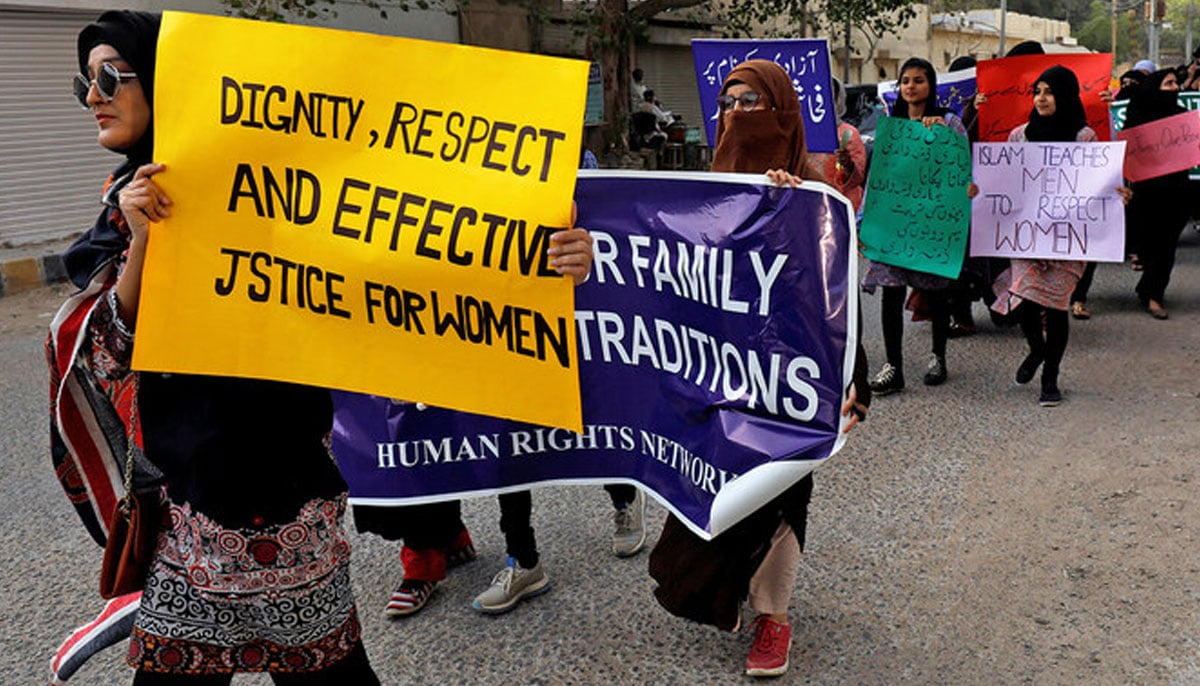
Yusuf also acknowledged PML-N for talking about child marriages. She also noted that the party had put forward some practical suggestions for women’s economic progress that it could follow through, for instance spreading digital awareness among women and encouraging them to get bank accounts.
“This isn’t something that requires legislation but can prove to be an important aspect of their economic plans. “It’s better than giving a generic statement that they will give equal rights to women.”
Talking about some of the reforms the party suggested to Balochistan and KP, Yusuf was of the view that the party might be able to implement all those things if they got to form a coalition government and build civil ties with the opposition party.
"Compared to all other party manifestos, the PPP appeared to be ‘more progressive’ than the others," Mumtaz added.
On the other hand, Yusuf believes that the party has a better attitude towards women in Pakistan, as it tries to implement it as well, such as the BISP programme. “The building of houses may not have been publicised much, but it is the most practical thing they could’ve done and it will have a positive impact.”
Despite this, Yusuf was not sure if the PPP would be able to deliver on its manifesto, noting that the party hadn’t done enough in recent years when it was in power.”
Will political parties be able to implement what they promised?
Javaid is of the view that many of the parties have given out suggestions but it doesn’t further trickle down on how they intend to follow through.
Highlighting a major issue ahead of the elections in Balochistan, she shared that women had been given tickets for the National Assembly constituencies where they could not contest from, urging the ECP to probe into how it was being handled.
"Resolutions and bills often do not have follow-ups to ensure their implementation. Any political party that comes into power should be responsible for making sure relevant ministries are following through with the bills passed.”
“In Balochistan, seamless service provision is needed at every level for women's rights. with a legislative cover,” she continued.
"There are many laws pending in Balochistan, especially the Child Marriage Bill, which has been pending since 2014 to no result even after 10 years,” adding that there were no child protection units in other districts except for Quetta.
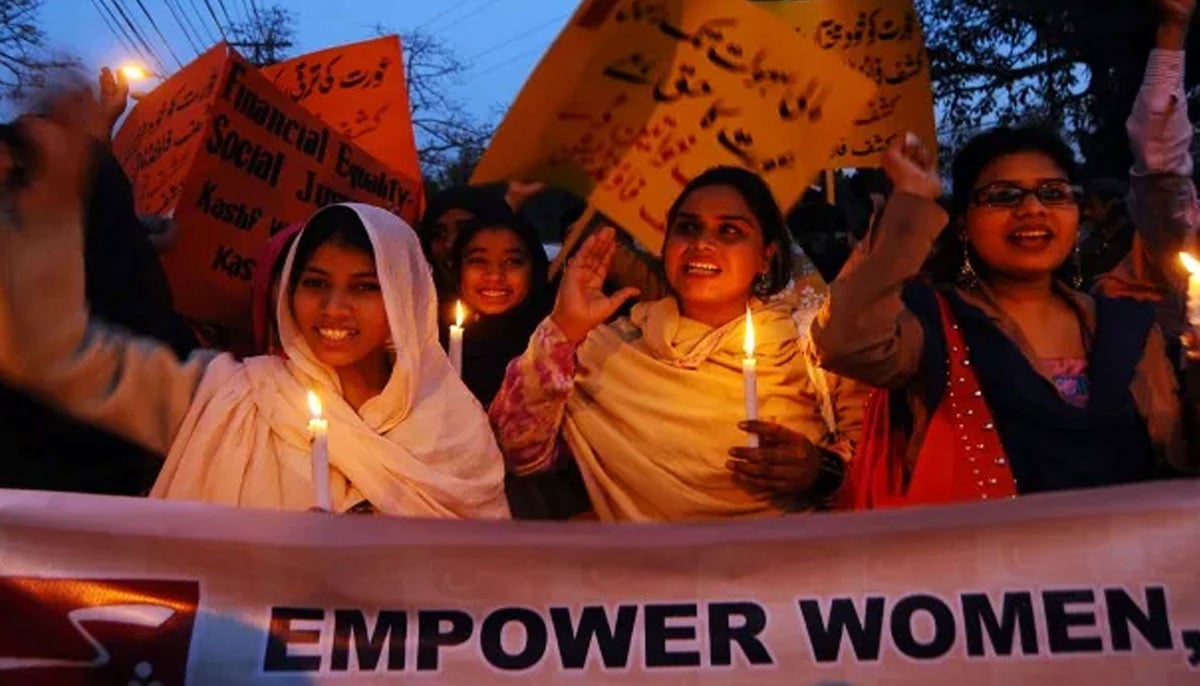
For PTI, Yusuf expressed concerns as its “leadership exhibited strong misogynistic tendencies" when they were in power.
"KP was the only province to refer the domestic violence bill to the Council of Islamic Ideology for approval. The PTI founder made several sexist and obnoxious remarks about women (e.g. saying men are not robots and when women wear revealing clothes, they are likely to be raped). Sadly, this statement was supported by the party's women leaders too. It should, nevertheless, be acknowledged that when in power it made some positive changes to the laws relating to rape,” she explained.
With regards to VAW and harassment laws, Mumtaz said that there was nothing new about these propositions made by all parties as they already exist.
“The whole issue is that [the parties] are not able to properly implement the law due to lack of resources since political parties are not social welfare organisations. However, it may be better for them to collectively work towards a goal. It would help if a privately-setup institute had many private donors and the support of the government to provide free service to the public,” she suggested.
“It’s a better policy to support private initiatives to facilitate women on different issues (such as health, welfare etc) by funding resources rather than adding another social organisation of their own which would be an extra expense.”
Bari was of the view that almost all political parties had mentioned something about women's rights but that was not a priority for most of them.
“In the abridged versions, the parties highlighted pressing concerns that would be addressed first. However, there was not even a mention of women’s rights, implying that the issues are on the back-burner, but increasing the budget to modernising military establishment is on the priority list.”
She said the laws were there but the main problem was in their implementation. Every party had the chance to bring a transformative change in the past but nothing of that level had been seen, she added.
"So, while women have been made into a separate category that is yet to be integrated into every policy that they have promised.”
Adeela Akmal is a staffer at Geo.tv. She posts on X @AdeelaAkmal
— Header and thumbnail images created using AI



